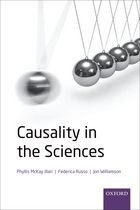Workshop Social mechanisms and social explanations 8 May, Rotterdam
Feb 13
Project: Mechanisms and the Evidence Hierarchy
UK Arts and Humanities Research Council project 2012
Brendan Clarke, Donald Gillies, Phyllis Illari, Federica Russo, Jon Williamson
Evidence-based medicine is a relatively recent technique for supporting clinical decisions by the ‘conscientious, explicit, and judicious use of current best evidence’ (Sackett et al. 1996. BMJ. 312: 71). This ‘best evidence’ usually has a very specific meaning: the best evidence available to support decision-making in medicine is that arising from clinical trials, where treatments are tested on large numbers of patients. On the other hand, evidence of mechanisms – usually characterized as knowledge gained from experimental investigations in the laboratory – is held to be of low quality by the EBM practitioner.
However, recent work in the philosophy of causality has suggested that this hierarchical interpretation of evidence is problematic, while even within medicine there is interest in evidence that can complement evidence gained in clinical trials.
Decisions about treatment make a difference to the health of individuals. Therefore it is of utmost importance to develop a concept of evidence that maximizes the available sources of evidence (trials, results of lab experiments) and minimizes the risks of errors in various medical decisions.
In this project, we aim to investigate the relationship between evidence-based medicine, evidence of mechanisms, and causality from a number of different theoretical and practical perspectives including philosophy of causality, philosophy and history of medicine, and medical practice.
Feb 13
Conference: Evidence and Causality in the Sciences
5-7 September 2012
University of Kent, Canterbury, UK
Organisers: Phyllis Illari and Federica Russo
Causality is a vibrant and thriving topic in philosophy of science. It is closely related to many other challenging scientific concepts, such as probability and mechanisms, which arise in many different scientific contexts, in different fields. For example, they are relevant to both causal inference (finding out what causes what) and causal explanation (explaining how a cause produces its effect). They are also of interest to fields as diverse as astrophysics, biochemistry, biomedical and social sciences. There has also been an explosion of interest in evidence, most obviously in biomedical contexts with the rise of ‘evidence-based medicine’, but also elsewhere, such as in social science. What is evidence? How do we decide what our best sources of evidence are?
This conference will examine the relation between causality and evidence. This involves questions about the foundations of the sciences, e.g. what is evidence and how does it contribute to causal knowledge? But it also involves questions about specific applications, e.g. how should we best deal with the many problems of evidence given by expert witnesses in court; and questions about policy-making, e.g. what constitutes evidence of causation that is relevant to the design of socio-economic and public health policies?
These questions are all of immense current concern. Pressure on health systems from ageing populations, the obesity epidemic, coupled with severe financial constraints on public policy, means governments are demanding answers with increasing urgency.
Jan 17
Recently presented in Bielefeld
12-13 December. Workshop Magic and Medicine: Conceptions of Causality in Processes of Healing. ZiF, Bielefeld, Germany.
Jun 12
Now out!
Public health, evidence, and causation: Lessons from the studies on obesity,
Medicine, Health Care, and Philosophy
DOI 10.1007/s11019-011-9335-y
Mar 23
It’s out!
Causality in the Sciences
Phyllis Illari, Federica Russo, Jon Williamson (editors)
Oxford University Press
Feb 10
Freshly published
Models for prediction, explanation, and control: Recursive Bayesian Networks. Theoria
L. Casini, P. Illari, F. Russo, J. Williamson

